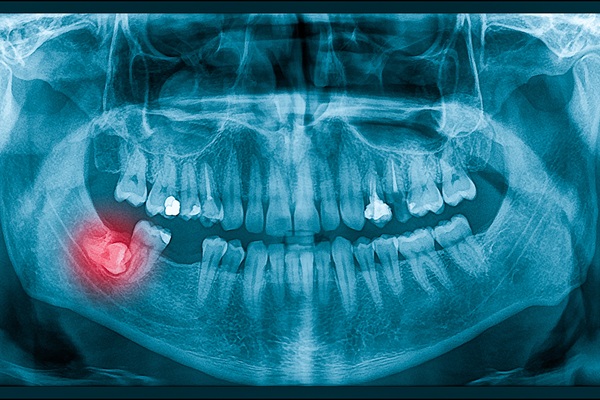Who Needs a Wisdom Tooth Extraction?
can induce anxiety in some; however, the procedure is needed in order to prevent issues from developing. In some scenarios, the eruption of the wisdom teeth does not lead to any issues, which means extraction may not necessarily be required. However, most people do experience problems relating to the eruption of their wisdom teeth. Keep reading to find out who may need extraction.
The need for wisdom tooth extraction
Outlined below are a few examples of those who may need a wisdom tooth extraction. This information can be very useful to someone who may not know whether or not their wisdom teeth should be removed.
Pain
If and when wisdom teeth eruption results in pain or discomfort, it is highly advised to undergo an extraction. Wisdom teeth eruption does not always go smoothly, and more often than not, the result is sharp, chronic pain. Additionally, some experience dull pain, which feels more like soreness. Regardless of the type of pain, it is not realistic to live with it. And, the pain usually represents a problem, thus resulting in a need for extraction.
Impaction
Those who experience impaction will definitely need a wisdom tooth extraction. Impaction is when a tooth gets stuck beneath the gums and behind the other existing teeth. It can be very dangerous to the soft and hard tissues of the mouth, which can lead to serious problems, such as infection, pain, and inflammation. In the event that an impacted wisdom tooth gets ignored or put on the back burner, the result can require multiple oral surgeries.
Crowding
An individual who is experiencing crowding as a result of their wisdom teeth erupting should undergo an extraction. The wisdom teeth erupting can push the other existing teeth in all directions, which can lead to problems.
Crowding can be extremely detrimental to the oral cavity as it can result in a shift in the existing adult teeth. Shifting can lead to decay. If the teeth shift so much that certain ones go in front of the other, or behind, there is a higher chance that food debris will get stuck, thus resulting in bacterial growth.
The help of a general dentist
When needing a wisdom tooth extraction, it is best to start by consulting with a general dentist. While it may be surprising to visit a general dentist, it is actually in the patient's best interest. General dentists undergo extensive training in all things related to the oral cavity, including the eruption of wisdom teeth. They are able to determine the best plan of action when it comes to extraction. For example, it is sometimes necessary to wait it out, while other times the need to extract is pressing.
Ultimately, a consultation appointment will help the patient, whether it is getting wisdom teeth extracted immediately or reducing discomfort intermittently until the extraction is performed. To find out more about wisdom tooth extraction, reach out today.
Request an appointment here: https://needhamdentistry.com or call Needham Dentistry & Implants at (781) 429-3080 for an appointment in our Needham office.
Check out what others are saying about our dental services on Yelp: .
Related Posts
Knowing when you need an emergency dentist can help save teeth, preserve oral health, and prevent serious complications. From sudden tooth pain to dental trauma, understanding the signs that require immediate attention helps ensure timely and effective care. Learning more about the role of an emergency dentist can prepare patients to act quickly in critical…
Teeth whitening is a popular cosmetic dental treatment. This procedure can effectively brighten your smile by addressing discoloration and stains. By understanding how teeth whitening targets stains, you can see how the process can restore your teeth to a cleaner and more youthful appearance.Tooth discoloration can occur for several reasons, and identifying the source is…
All-on-4® implants are an ever-growing trend due to their permanence and ease. Many people struggle with temporary tooth solutions such as dentures, as they can slide around and need frequent resizing. All-on-4 implants are completed by inserting posts into the jawbone and replacing all teeth. Before attempting to get surgery for the implants, there are…
Visiting a family dentist biannually (every six months) can help maintain optimal oral health. A family dentist provides consistent, comprehensive professional care that can prevent serious dental issues before they develop. This routine schedule offers a practical approach to long-term oral hygiene and wellness.Seeing a family dentist every six months is important because these visits…
